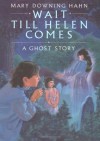Familiar Diversions
I'm a librarian who loves anime, manga, and reading a wide variety of genres.
Currently reading
The Man Who Knew Too Much: Alan Turing and the Invention of the Computer by David Leavitt, narrated by Paul Michael Garcia

This is a tough book for me to review, because at least 50% of it went in one ear and out the other. Don't get me wrong, it was interesting, it's just that I couldn't follow a lot of it.
Part of the problem was the diagrams. I'm pretty sure there were a lot of them, especially in the first half of the book, and the poor narrator had to read all of it out loud. I have a feeling that, even if I weren't a more visual learner, I still would have had trouble following the various long series of letters or numbers used to demonstrate Turing's ideas.
The other problem was that the first half of the book didn't seem to have a solid organizational structure. The author would discuss people or ideas that didn't seem to have much connection to Turing, then move onto another subject, and then another. It was interesting stuff, but I had trouble seeing how it all connected.
Thankfully, the latter half was much less confusing. I enjoyed the sections on Turing's cryptography work during World War II, and I loved the sections near the end on Turing's ideas about machine learning and artificial intelligence. While I didn't always agree with his theories about how a machine might best be taught, which were based on old-fashioned child rearing techniques (and which I recognize would not necessarily have been considered old-fashioned from his perspective), I found his way of thinking about machines to be fascinating.
He questioned the prevailing tendency to take human superiority for granted. Others repeatedly stated that machines could never be equal to or more superior than humans for various reasons: they would never enjoy the taste of strawberries and cream, never write a sonnet, never listen to a piece of music and feel moved, and never fall in love or cause someone else to fall in love with them. Turing refuted many of these statements and questioned the importance of others. For example, someone probably could create a machine that could enjoy the taste of strawberries and cream, but why would anyone want to do that? The bit about sonnets inspired one of my favorite quotes: “A sonnet written by a machine will be better appreciated by a machine.” To his mind, machines would have a way of viewing and appreciating the world that would likely be different from, rather than inferior to, the way humans would view and appreciate it.
He was also adamant that, when judging machines' intelligence and ability to think, they not be held to higher standards than humans. Humans require training and education before they can properly perform new tasks, and it's accepted that humans will occasionally make mistakes. Why shouldn't machines be given a similar amount of leeway?
I did think that Turing's “imitation game,” which has come to be called the Turing test, contradicted some of his other ideas, since it was based on a machine's ability to convince a human interrogator that it was human. Rather than accepting the idea that a machine's thought processes and ability to appreciate the world would probably be different from a human's, the Turing test brings us back to the idea of human superiority – a machine could only be said to “think” if it could imitate a human being enough to be mistaken for one.
I had thought this book would contain more biographical information than it did, but it was really more about Turing's ideas. The one aspect of Turing's personal life that the author did frequently write about was his homosexuality. The book briefly mentioned that he might not have been permitted to do cryptanalysis work at Bletchley Park if the government had known he was gay, and I was a little amazed that they didn't know, since he seemed to be fairly open about it. I have a feeling that the only reason he kept out of trouble for so long was because he was quiet, shy, and socially awkward. Although I knew from the start of the book that things wouldn't end well for Turing, the final section of the book, on his ill-fated relationship with Arnold Murray, his conviction for gross indecency, the estrogen injections that he was given to “cure” him of his homosexuality, and his eventual suicide (the author also briefly brings up the possibility that Turing was assassinated), was heartbreaking.
And here I thought this was going to be a short review. Anyway, the first half of this book was a mess and would probably have been better in paper or e-book form. The second half of the book was much better and made up for the first half somewhat. According to several reviews, Andrew Hodges' Alan Turing: The Enigma is overall a much better book, so I may see about reading it (or, more likely, listening to it) at some point in the future.
Additional Comments:
I enjoyed Paul Michael Garcia's narration, but the audio quality was very uneven, sometimes noticeably changing in the middle of a sentence.
(Original review posted on A Library Girl's Familiar Diversions.)
 14
14












